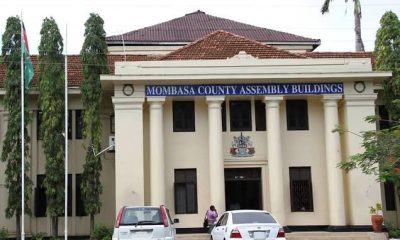Kenya Revenue Authority (KRA) will have unrestricted access to your M-Pesa and bank account details if a new proposal is passed.
This means KRA could monitor transactions involving Paybills, bank accounts, and apps used for cash receipts by businesses and individuals.
The government aims to collect over Sh350 billion more in tax revenues this fiscal year to reduce the deficit in its Sh3 trillion budget.
In the proposal, The Treasury is seeking exemption for KRA to access sensitive personal data like details of properties owned and bank accounts operated by taxpayers without a court warrant in fresh efforts to catch tax cheats.
It will require amending the law to access new sources of revenue heretofore hidden and undeclared, as the cash-needy government seeks more money and foregoes offered syndicated loans.
Treasury Cabinet Secretary Njuguna Ndung’u has proposed to amend the Data Protection Act, 2019, through the Finance Bill, to allow the KRA unfettered access to sensitive information held by data controllers and processors, including banks, telecoms operators, utilities, schools, land registries and the National Transport and Safety Authority (NTSA).
The Finance Bill, 2024 also proposes to integrate the databases of these data controllers and processors with the KRA’s digital system, known as the i-Tax, in a far-reaching move that legal practitioners have described as “worrying.”
“Section 51(2) of the Data Protection Act is amended by inserting the following new paragraph immediately after paragraph (b)—(ba) disclosure is necessary for the assessment, enforcement or collection of any tax or duty under a written tax law,” says the Finance Bill which has been tabled in the National Assembly.
Section 51 (2) of the Data Protection Act 2019 allows data controllers and processors, to share personal data with a third party if it relates to the individual himself purely for personal or household activity and when it is necessary for national security or public interest.
Section 51 (2) (c) also allows for exemption if the disclosure is required by or under any written law or by an order of the court.
But the KRA does not prefer using this provision in pursuing unpaid taxes. It wants to leverage on increased use of data and linkages between the KRA’s systems with third parties such as banks and mobile money platforms like M-Pesa to spy on taxpayers’ activities, use of Internet-enabled cameras at excisable goods processing plants and full rollout of digital electronic tax registers (ETRs) to grow revenue.
Ruto on Mpesa tax cheats
The new proposal compliments with Ruto’s assertion that many Kenyans are not paying taxes despite earning considerable income given their Mpesa transactions.
“There are only 7 million people with KRA pin numbers. In the same economy, Safaricom’s MPESA has 30 million registered customers, transacting billions daily. The fact that this opportunity remains unclear to KRA demonstrates why radical changes are necessary.” Ruto said in 2023.
The KRA’s enforcement unit has been using various databases to pursue suspected tax cheats, including bank statements, import records, motor vehicle registration details, Kenya Power records, water bills and data from the Kenya Civil Aviation Authority (KCCA), which reveals individuals who own assets such as aircraft.
Car registration details are also being used to smoke out individuals who are driving high-end vehicles but have little to show in terms of taxes remitted. Kenya Power meter registrations are also helping the taxman to identify landlords, some of whom have been slapped with huge tax demands.
The taxman has also sought details of suppliers and contractors hired by county governments in the quest to tighten the noose on individuals and firms evading tax.
The KRA says a sharp increase in imports of luxury goods and multi-million shilling investments in real estate has opened its eyes to a potentially massive tax leakage, which if tapped could yield billions of shillings in additional revenues to the Exchequer.
The argument is supported by the fact that only a few Kenyans have officially registered as belonging to the high-income earners’ bracket despite the massive growth in conspicuous consumption, especially in Nairobi.
Kenya Insights allows guest blogging, if you want to be published on Kenya’s most authoritative and accurate blog, have an expose, news TIPS, story angles, human interest stories, drop us an email on [email protected] or via Telegram

 Investigations2 weeks ago
Investigations2 weeks ago
 Investigations2 weeks ago
Investigations2 weeks ago
 Investigations2 weeks ago
Investigations2 weeks ago
 Investigations1 week ago
Investigations1 week ago
 Opinion2 weeks ago
Opinion2 weeks ago
 Investigations1 week ago
Investigations1 week ago
 Investigations1 week ago
Investigations1 week ago
 Business1 week ago
Business1 week ago
















